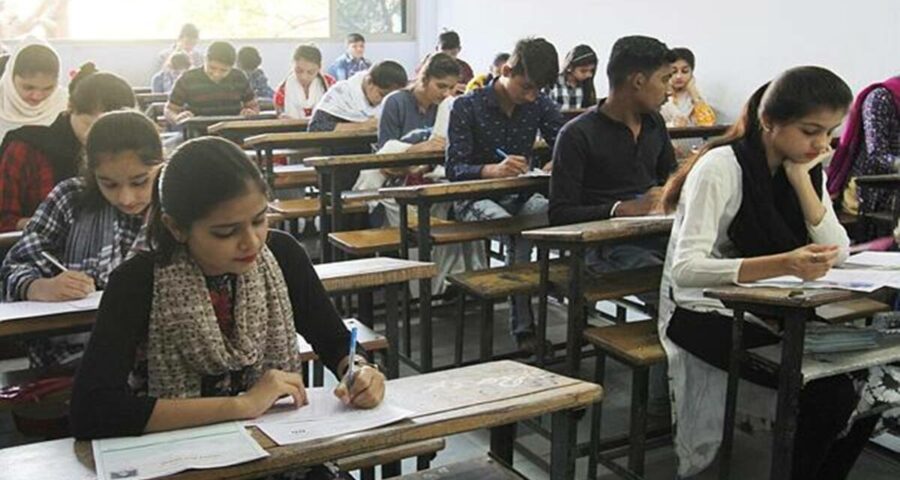The Uttar Pradesh Board examinations were scheduled to start from April 24 and the Secondary Education Board has already released the schedule for both classes 10 and 12 examination.
With the panchayat poll dates likely to be announced by the week-end, sources in the government said Uttar Pradesh Secondary Board examinations may be postponed following recommendations made by the Uttar Pradesh Panchayati Raj Department.
The Uttar Pradesh Board examinations were scheduled to start from April 24 and the Secondary Education Board has already released the schedule for both classes 10 and 12 examination. However, if recommendations of the Panchayati Raj Department is accepted, then the Board examinations are likely to be held in May.
The three-tier panchayat polls will take place in the state and notification is expected either on March 27 or March 28. The process is likely to take about 40 days as the three-tier polls will take place for 75 posts of Zila Panchayat Chairman, 826 Kshetra Pancyayat heads and 58,194 Gram Pradhan posts.
Top News Right Now
Click here for more
Meanwhile, as per the schedule released by Uttar Pradesh Secondary Board, the examination were scheduled to start from April 24 onwards and take place in two shifts. While Class 10 board exams were scheduled to end on May 10, class 12 examinations were scheduled to be over on May 12. Nearly 56 lakh students are expected to appear for these Board examinations across the state.
However, once the recommendations of the Panchayati Raj Department are accepted, the examination is likely to be shifted in the first or second week of May and are likely to get over by end of May.
“The panchayat polls are likely to continue till April-end. So, we have recommended to postpone the Board examinations by a week as the elections are likely to coincide,” said a senior government officer. “The poll dates are likely to be declared this week itself,” the officer added.
Meanwhile, political parties, especially the ruling BJP and Samajwadi Party, have launched their extensive campaign at the village level through chaupals and mass contact programmes.
Source: Read Full Article


